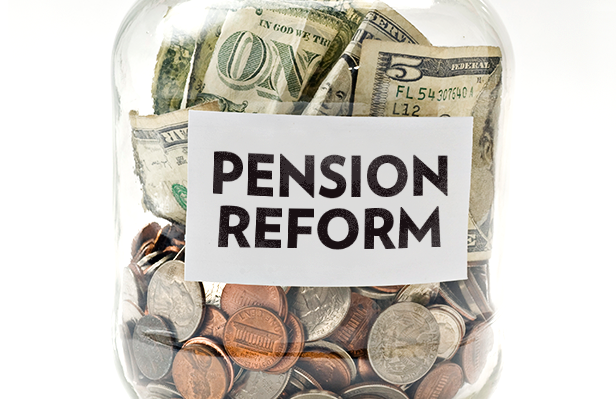Press Release

Union Leaders Kill Critical Pension Reform at Members’ and Taxpayers’ Expense
Union Leaders Kill Critical Pension Reform at Members’ and Taxpayers’ Expense
Reform Could Have Freed Public Employees from Restrictive, Failing Pension System
October 27, 2016, Harrisburg, Pa.—In a blow to the public employees they claim to represent, government union leaders blocked significant pension reform that would have enhanced choice and portability for new state and public school employees and slowed the accumulation of taxpayer-backed pension debt.
“Today, we saw the lengths to which government union leaders will go to keep their members trapped in an unsustainable and restrictive pension system,” commented Nathan Benefield, vice president of policy for the Commonwealth Foundation. “For years, public union leaders have propagated myths to derail reform and push our pension system closer to collapse. The truth is, this reform would have maintained current employees’ benefits, given new employees better options, and taken steps toward safeguarding Pennsylvania taxpayers.”
The bill would have provided state employees and public school employees with a combination plan consisting of a defined benefit component alongside a 401(k)-style component. Employees would also have been able to escape the failing pension system entirely by choosing a straight 401(k)-style plan. Existing employees would not have been affected by this change.
A poll conducted from October 4th to 9th, showed 54 percent of voters support placing new state employees in a 401(k)-style retirement plan, including 67 percent of Republicans, 51 percent of Independents, and a plurality of Democrats.
Yet government unions including the Pennsylvania State Education Association (PSEA) and SEIU Local 668 have actively opposed the plan, despite the fact that both unions offer their own employees a 401(k)-style option alongside a defined benefit plan. Moreover, a union front group called “The National Public Pension Coalition”—which received at least $800,000 from government union dues last year—had been running Internet attack ads to scare House members.
A recent Commonwealth Foundation report showed Pennsylvania’s unfunded pension liability has ballooned 730 percent since 2006, spiking from $7.6 billion to more than $63 billion. Yet, in 2007, the Pennsylvania State Education Association claimed, “There is no crisis in the Pennsylvania state pension plans.”
“It is troubling that even this compromise of a compromise was killed by self-interested union leaders,” Benefield continued. “As property taxes continue to skyrocket and school district budgets are further squeezed by rising pension costs, taxpayers should know that government union leaders oppose any reform. Taxpayers, workers, and teachers can’t afford any more inaction on pension reform.”
Nathan Benefield and other Commonwealth Foundation experts are available for comment. Please contact Gina Diorio at 862-703-6670 or [email protected] to schedule an interview.
# # #
The Commonwealth Foundation transforms free-market ideas into public policies so all Pennsylvanians can flourish.